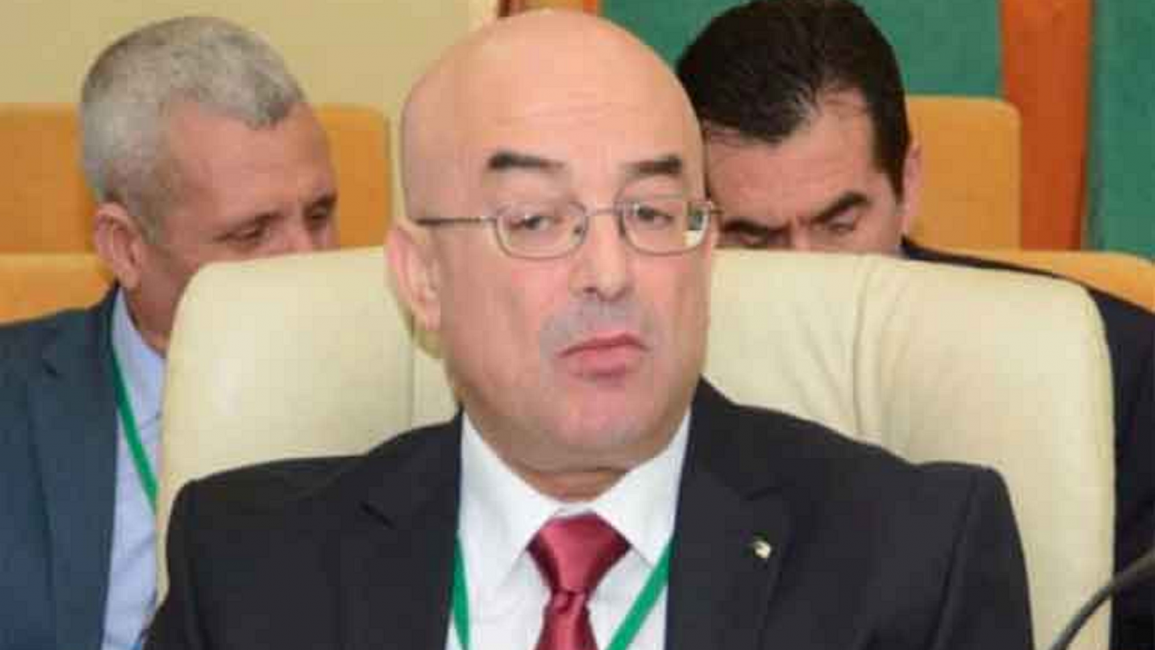Algerians troll interior minister with 'gay' hashtag after he calls protesters 'traitors and homosexuals'
Algeria's Interior Minister Salahedine Dahmoune called protesters opposed to the holding of presidential elections "traitors, mercenaries, homosexuals, perverts, and remnants of imperialism" on Tuesday, causing outrage in the North African country.
The sarcastic hashtag "We_are_all_mercenaries_perverts_and_homosexuals" began trending in Algeria after his egregious remarks.
Algeria's longtime leader Abdelaziz Bouteflika was ousted in April after popular protests. The interim authorities, nominally led by interim President Abdelkader Bensalah, plan to hold elections on 12 December.
Algerian protesters have rejected the elections, saying that they will allow Bouteflika's henchmen to remain in power.
So far five candidates have been announced. Two of them were formerly prime ministers and two others served as cabinet ministers.
Twitter Post
|
On Friday, thousands took to the streets of Algiers chanting "There will be no vote! We swear we will not stop!"
At least 25 people were arrested before the protest.
Comment: Algeria’s cry – 'They’ve all got to go’ even the bots!
In his statement, which was broadcast by a number of Algerian television stations, Dahmoune blamed the protests against the controversial elections on "imperialist" powers.
"Today, this imperialism, or what’s left of it - it's imperialist ideology and it’s still alive for some - is using some kids or fake Algerians including traitors, mercenaries, perverts and homosexuals. We know each one of them. They're not us and we’re not them."
Twitter Post
|
The interior minister didn't specify who exactly he was talking about.
He also mentioned two icons of the 1954-1962 Algerian War of Independence against French colonialism, Sheikh Bouamama and Abdul Hamid Ben Badis to justify his words.
"We need to be united and give them a lesson on 12 December to show the unity of the Algerian people and protect our independence," he said.
Twitter Post
|
Dahmoune also attacked the European parliament for its criticism of Algeria's treatment of protesters, saying that its hostility was part of "historic plans to attack the unity of Algeria and its people".
The minister was widely condemned for his attack on the protesters.
Nasser Djabi, an Algerian political science researcher, told The New Arab's Arabic-language service.
"What the interior minister said is more than dangerous. It’s clear verbal violence."
"This is recklessness we're not used to in Algeria and these statements reflect the crisis of the regime. It's backed into a corner and its relations with the people its dealing with have deteriorated," he added.
The Algerian presidency called Dahmoune to its offices to clarify his statements on Tuesday evening.
Following the public outcry, he tried to qualify his statement, saying, "I wasn’t talking at all about the political movement that our country has been living through for months."
"My statement was only directed at a small group of fake Algerians made up of foreign agents, traitors, and people who commit shameful acts," he added, appearing to double down on his statements rather than apologise.
Twitter Post
|
Ever since its independence from France in 1962, Algeria has been ruled by successive authoritarian governments, most of them run by the Front de Liberation Nationale (FLN) with the support of the Algerian military.
Free elections were held in 1991 but they were annulled by the military when it seemed like the Islamist FIS party was going to win them.
Algeria descended into a bloody civil war after that which did not end until 1997.
Since the late 1990s presidential and parliamentary elections have regularly been held but they are widely considered to have been rigged in favour of candidates supported by the army.
Twitter Post
|



